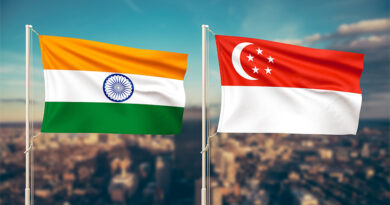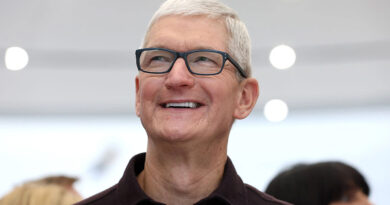Strengthening India-Australia Relations After ECTA, Anthony Albanese Visit
The first official visit of Australia’s Prime Minister Anthony Albanese to India, since taking office in May last year, opened new business and bilateral investment prospects in the critical minerals, clean energy, and education sectors. Several memoranda of understanding and partnerships launched during the four-day visit from March 8-11 were a culmination of years of back-and-forth negotiations, which have fast-tracked amid recent geopolitical events and India’s ambition to better integrate into global supply chains. We look at some of the key outcomes of Albanese’ visit in this article and the sectors where opportunities are opening up for Australian commercial entities.
Australia’s Prime Minister Anthony Albanese made his first official visit to India earlier this month with a packed schedule intended to take bilateral ties to the next level. He was elected PM in May 2022.
Important themes for the four-day visit included cooperation in the rare earth sector and clean energy besides trade and immigration. PM Albanese also joined India’s Prime Minister Narendra Modi for Day 1 of the fourth match in the India-Australia test cricket series (Border-Gavaskar Trophy), indicative of long-standing cultural ties between the two nations, where the sport is beloved.
India-Australia relations have been moving from strength to strength in recent years. In June 2020, the relationship between the two countries was elevated from a Strategic Partnership to a Comprehensive Strategic Partnership. Further, negotiations to the India-Australia Economic Cooperation and Trade Agreement (ECTA) were put on the fast-track, coming into force December 29, 2022.
The positive bilateral engagement has carried over into high-level visits, mutual recognition in the education sector, industry MoUs, security and defense collaboration, besides trade and investment facilitation.
Our relationship with India is strong but it can be stronger. It is underpinned by our Comprehensive Strategic Partnership, which underscores a joint commitment to working together to enhance our defence, economic, and technological interests… A stronger India-Australia partnership is good for the stability of our region. It also means more opportunities and more trade and investment, strengthening our economies and directly benefiting our people. – PM Anthony Albanese
As per the Australian government, two-way goods and services trade with India reached $34.3 billion in 2021. That year, Australia’s stock of investment in India was $19.9 billion and India’s total investment in Australia was $27.8 billion.
Key outcomes of PM Albanese’ visit to India
Albanese’ maiden visit to India saw multiple agreements signed and joint ministerial cooperation launched in the fields of critical minerals, clean energy, education, and mobility.
Critical minerals
Australia and India have agreed to cooperate in the field of critical minerals. The India-Australia Critical Minerals Investment Partnership will help both countries in developing trusted strategic supply chains between them. While Australia has abundant resources, India has ambitious plans to scale up its clean energy industry and technology, including electric vehicles.
India and Australia have currently identified five projects for due diligence study, including two lithium and three cobalt.
Further, KABIL (Khanij Bidesh India Limited) is set to make a significant investment in Australia’s rare earth sector, via a joint venture of three state-run Indian firms and the Critical Minerals Office under Australia’s Department of Industry, Science and Resources. The investment partnership reached a critical milestone in March, according to India’s Union Minister for Coal, Mines and Parliamentary Affairs, Pralhad Joshi, following an MoU signed last year.
Interestingly, on February 15 this year, Australia’s federal treasurer blocked a Chinese-linked investment fund, Yuxiao Fund, from increasing its stake in a strategic Australian rare earths producer, Northern Minerals Limited. The Chinese-linked fund wanted to up its stake from under 10 percent to 19.9 percent.
India’s goals to lower carbon emissions and boost electric vehicle production presents great opportunities and prospects for Australia’s critical minerals sector, for renewable exports and for building stronger supply chains. – Minister for Resources and Northern Australia Madeleine King
In a 2021 document, the Australian Trade and Investment Commission noted the below opportunities for cooperation between the two markets:
- What Australia offers: Australian companies and institutions can partner with India to supply critical minerals; mobilize investment for Australian mining and mineral processing projects; export services and technology to process, refine, recover, and recycle critical minerals; provide technical assistance with mineral exploration in India; provide support for environmental management of mining projects in India; and conduct joint research.
Australia produces almost half of the world’s lithium supply and is the second-largest producer of cobalt and the fourth-largest producer of rare earths. - What India offers: Economies of scale for offtake projects and a pipeline of manufacturing-led commercial innovation opportunities.
The Australian Trade and Investment Commission has identified eight critical minerals essential to both India and Australia, namely titanium and vanadium (traditional), lithium (sunrise), cobalt, nickel, graphite, light rare earth elements (LREEs), and heavy rare earth elements (HREEs).
Comprehensive free trade deal
India and Australia hope to complete negotiations to a comprehensive free trade agreement (FTA), by the end of this year. The precursor to the deal, the India-Australia ECTA, has been in effect from late last year, following accelerated talks.
The ECTA removes duties on 96 percent of Indian exports to Australia and 85 percent Australian exports to India. An FTA will expand this trade facilitation by lowering more barriers and addressing key industry and investor concerns. They will provide a reference blueprint for India’s ambitions in growing its international trade presence through such deals. India is currently negotiating trade deals with the UK and EU.
According to the Australian Commerce and Trade Minister, Don Farrell, who accompanied Albanese on the trip, in the first month after the ECTA came into effect, Australia exported goods worth $2.5 billion to India. India-Australia trade was $25 billion in FY 2021-22, up from $12.3 billion the preceding year.
With a comprehensive FTA being discussed, India hopes to expand two-way trade to reach the $100 billion-mark. Australia is keen to firm up the deal by this year but Indian commerce and trade minister, Piyush Goyal, asserted that any deadline would not compromise the quality of negotiations. This could be read as political speak for the FTA being a priority for India, but on its own terms.
Both countries’ agriculture ministries are also considering areas of mutual interest in farm trade, besides resolution of issues like sanitary and phyto-sanitary standards.
Farrell also mentioned that trade discussions will include space technology and digital sector opportunities alongside critical minerals.
Education
On March 8, Albanese announced an ‘Australia-India education qualification recognition mechanism’ [Mutual Recognition of Educational Qualifications or MREQ] and said that Deakin University will be the first overseas university approved to set up an international branch campus in India.
[The mutual recognition of Indian and Australian educational degrees] is the most comprehensive and ambitious arrangement agreed to by India with any country. It paves the way for commercial opportunities for Australian education providers to offer more innovative and accessible education to Indian students and provide a solid basis for education institutions to consider new ways to partner with each other. – PM Anthony Albanese
The offshore campus of Deakin University will be established at GIFT City, Gujarat, and will offer courses on cyber security and business analytics, among others. The University of Wollongong has also expressed its interest in setting up an offshore campus at GIFT City.
A new ‘Maitri’ scholarship was announced for Indian students studying in Australia, valid for a period of up to four years.
In another recent development, the Australia-India Education Council (AIEC) has widened its scope to include cooperation in the area of skill development. The Australian government will contribute $1.89 million for supporting Indian skill programs in the area of agriculture, a critical sector for the country.
Education is Australia’s largest service export to India and was valued at $4.2 billion in 2021.
About Us
India Briefing is produced by Dezan Shira & Associates. The firm assists foreign investors throughout Asia from offices across the world, including in Delhi and Mumbai. Readers may write to india@dezshira.com for more support on doing business in in India.
We also maintain offices or have alliance partners assisting foreign investors in Indonesia, Singapore, Vietnam, Philippines, Malaysia, Thailand, Italy, Germany, and the United States, in addition to practices in Bangladesh and Russia.




